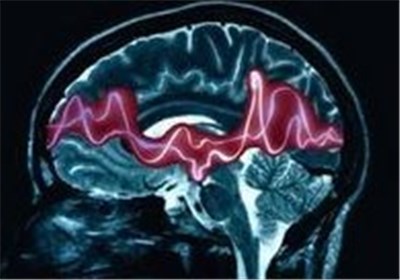
The youngest people with type 1 diabetes -- under 6 years old -- seemed to be six times more likely to develop epilepsy, researchers reported.
But, those with the highest risk of epilepsy appeared to be children with type 1 diabetes who had to be treated in a hospital for a severe low blood sugar (hypoglycemia). The study found the risk of epilepsy was 16.5 times higher for these children.
It should be noted, however, that the study did not establish a cause-and-effect relationship between the two conditions. And the "absolute" risk of any one person with type 1 diabetes going on to develop epilepsy remains very small.
Epilepsy is a brain disorder affecting less than 1 percent of the population, according to the US National Institute of Neurological Disorders and Stroke.
Type 1 diabetes is an autoimmune condition that causes destruction of the body's insulin-producing cells. Insulin is a hormone necessary to use the sugars found in foods. To replace the missing insulin, people with type 1 diabetes must take multiple daily injections of insulin or use an insulin pump with a thin tube inserted under the skin to deliver the insulin, according to the American Diabetes Association (ADA).
However, achieving the correct dose of insulin can be difficult. Too little insulin, and high blood sugar results. Over time, high blood sugar can cause serious damage to blood vessels, especially in the eyes, kidneys and heart. Too much insulin also poses a danger, causing low blood sugar levels, which if left untreated can cause unconsciousness and even death, according to the ADA. Previous research has shown that people with type 1 diabetes experience approximately two episodes of low blood sugar each week. Severe hypoglycemia is much less frequent, however.
The researchers aren't sure how type 1 diabetes and epilepsy may be linked, US News reported on Thursday.
But study author Dr. I-Ching Chou of China Medical University's Children's Hospital in Taichung, Taiwan, and colleagues suspect a variety of factors may be at play, including immune abnormalities, brain lesions, genetic factors and metabolic abnormalities.
Blood sugar levels that are too high or too low have also been shown to trigger seizures in elderly people, the study authors added.
And previous studies have suggested that having type 1 diabetes at an early age and having severely low blood sugar are critical risk factors for brain abnormalities, the researchers said.
Dr. Gerald Bernstein, an endocrinologist and coordinator of the Friedman Diabetes Program at Lenox Hill Hospital in New York City, said that when people with diabetes don't rigidly control their blood sugar levels, tiny blood vessels in the brain can be affected.
Using data from the Taiwan National Health Insurance Research Database, the study authors pulled records on almost 2,600 children and adolescents with type 1 diabetes, and a comparison group of 26,600 people without a type 1 diagnosis.
Children with type 1 diabetes were about 10 years old, while youngsters in the comparison group were about 11 years old, on average.
Each child in the study group was matched with 10 control-group children for factors including sex, and whether they lived in an urban or rural area.
In kids with type 1 diabetes, the risk of developing epilepsy, after adjusting for other factors that might affect the results, appeared to be 2.84 times higher than in people without diabetes.
Children in the study group with intellectual disabilities were also much more likely to develop epilepsy, the study found.
Tasnim News Agency - science solhkhabar | Peace International News Agency Peace International News Agency , Peace News , International Agency News of Peace
solhkhabar | Peace International News Agency Peace International News Agency , Peace News , International Agency News of Peace